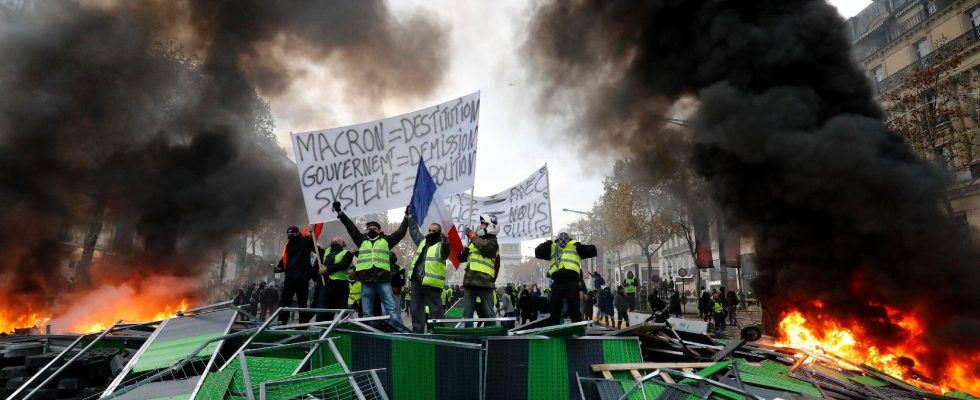In this series, La Loupe met those who were closest to this movement: police officer, trade unionist, journalist, mayor, deputy, magistrate… They began their careers with many ideals, but what about five years later ? Today, Thibaut Spriet, former district judge and national secretary of the Magistrates’ Union, talks about how justice still suffers from the period.
The team: Charlotte Baris (presentation and writing), Jules Krot (editing and production).
Credits: France 2, France 3, Brut, France Bleu Besançon, France 24, BFMTV
Music and design: Emmanuel Herschon / Studio Torrent
Image credits: François Guillot / AFP
Logo: Anne-Laure Chapelain / Benjamin Chazal
How to listen to a podcast? Follow the leader.
Charlotte Baris: It is November 17, 2018. On that day, nearly 300,000 people put on their fluorescent vests to meet on roundabouts, near tolls or even parade on the Champs-Elysées. This is act 1 of the yellow vests.
For the first time in France, a large-scale mobilization is taking place on social networks. This is where the calls to demonstrate are increasing. There too, everyone expresses their demands, from the price of fuel, to the reduction of speed to 80 kilometers per hour, including the cost of living.
Every day, everywhere in France, many people meet for blockades, before the big weekend gathering. And sometimes, the processions become violent: the clashes between yellow vests and the police are broadcast repeatedly on the news channels, there are numerous arrests and damage, and there are even more than a thousand injured afterwards. Act 4″.
As early as December, Emmanuel Macron announced a certain number of social measures to respond to this anger, but it did not subside.
The movement takes place over time. The yellow vests meet in major cities every Saturday. In January 2019, the majority organized the big debate, to raise the concerns of the French. Here again, the results are rather mixed
And despite attempts at political anchoring, the mobilization is running out of steam. It experienced some upheavals, notably against the pension reform at the beginning of 2020. It was ultimately the Covid-19 pandemic which sounded the death knell for these demonstrations.
However, through its scale and singularity, the yellow vest movement has left its mark on French democracy. So five years after the first act, L’Express wanted to give a voice to those who saw it up close. They were young police officers, magistrates, journalists, mayors or newly elected deputies. And in this series, they tell how their ideals collided with these months of mobilization…
Yellow vests: is a 2018 remake possible?
Justice reopens investigation into blinded “yellow vest” in Paris
From gasoline to health pass: the transformation of yellow vest groups on Facebook
